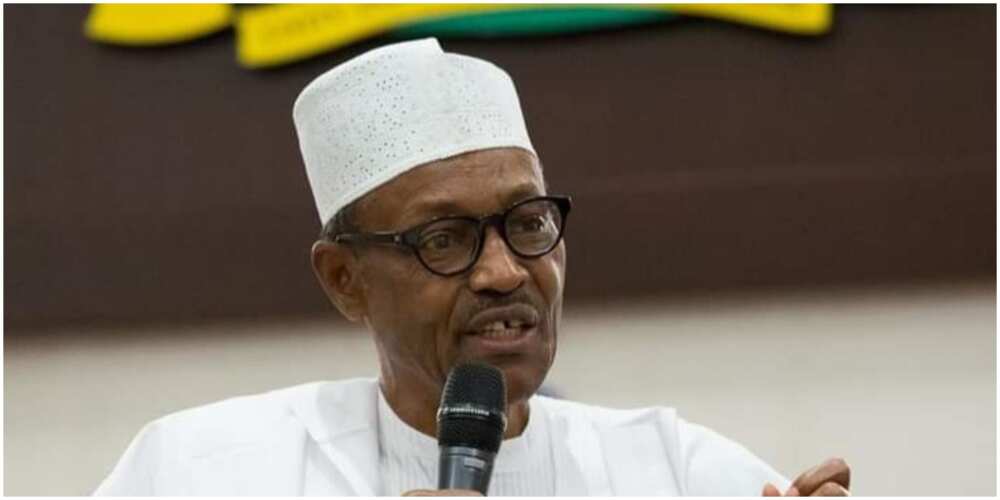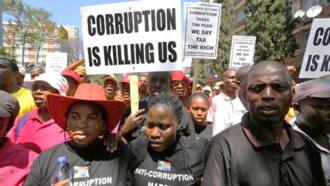Unemployment Crisis: Nigeria's Labour Market Worsened Since 2016, World Bank Says
- The World Bank says Nigeria's unemployment rate worsened in 2016 after the country entered recession for one year
- Bretton Wood also stated that the COVID-19 pandemic compounded the unemployment crisis in Nigeria after shutting down economy
- Nigeria's unemployment rate climbed to 33.3 percent as at the end of last year, from the 6.4 percent reported ten years ago
The unemployment rate significantly worsened under President Muhammadu Buhari-led administration, a new World Bank report on Nigeria's job market has disclosed.
While it stated that the unemployment rate rose from 6.4 percent in 2010 to 33.3 percent at the end of 2020, the World Bank said the number of unemployed Nigerians recorded a sharp rise within the last five years.
The World Bank stated that the high unemployment rate in Nigeria was driven by the 2016 recession, which lasted for a year, and COVID-19 pandemic which also pushed Nigeria's economy into a short-term recession in 2020, forcing companies to cut-out jobs.

Source: Facebook
This was gathered from the global bank's report, titled, ‘Of Roads Less Travelled: Assessing the Potential for Migration to Provide Overseas Jobs for Nigeria’s Youth.'
Nigeria's job market under President Buhari
World Bank also stated that individuals not active in Nigeria's working-age population rose to 52 million from 29 million, between 2014 and 2020.
The number of those willing and able to work among the working-age population rose to 90 million in 2018, from 73 million in 2014.
While the working age population has continued to rise by 3 percent every year in a job market that is starved with job opportunities.
Nigerian workforce are leaving the country
According to Bretton Wood, the active labour force population has dramatically decreased since 2018 to around 70 million, stating that it is lower than the level in 2014.
The report stated that Nigerians are leaving the country to look for jobs due to socioeconomic challenges, booming demographics, and unfulfilled aspirations.
“With limited legal migration options, young Nigerians are increasingly choosing irregular alternatives to find better work opportunities overseas." The report said.
Nigerian government milking the hike in migration
The jobless crisis is forcing Nigerians to escape the socioeconomic challenges through asylum and refugee status in other countries - and this is increasing the revenue of the government.
While jobs are lacking, the Nigerian government has found ways to earn from its citizens who seek and secured gainful employment overseas through remittance and diaspora investment, World Bank report stated.
“The Government of Nigeria (GoN) has developed institutional and policy frameworks that recognise international labour mobility as a tool to address unemployment, increase remittances, and facilitate the transfer of knowledge and investments from its diaspora, and has simultaneously worked on initiatives that curtail irregular migration.”
Amid rising unemployment, Minister wants Nigerians to pay more for fuel
As the working-age population struggle to get jobs, the Minister of State for Petroleum, Timipre Sylva, wants Nigerians to be charged more for fuel.
Sylva said he doesn't support the fuel subsidy in Nigeria, as it doesn't allow the government generate enough revenue from the oil industry.
He stated that a market cost-reflective price should be adopted by the Federal Government and stop subsidising the price of fuel for Nigerians.
Source: Legit.ng



